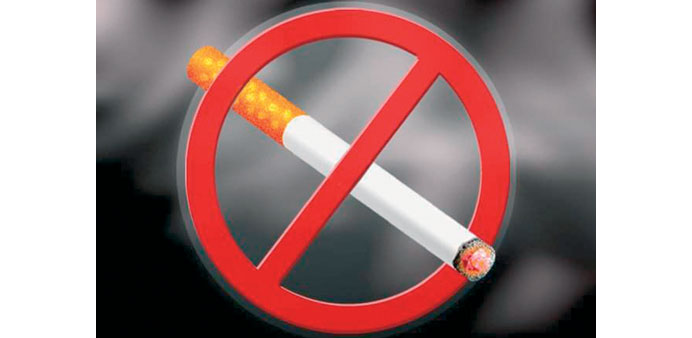A new law will soon be introduced in Qatar to ensure strict implementation of the ban on smoking in public places, said Dr Mohamed bin Hamad al-Thani, director of the Public Health Department in the Supreme Council of Health (SCH).
“A new draft law on tobacco consumption in Qatar is awaiting the Cabinet’s approval,” Mohamed bin Hamad told a press conference yesterday, announcing the launch of a Global Adult Tobacco Survey in Qatar.
“We hope the law is approved as it contains more stringent rules than the existing anti-smoking law,” he added.
Mohamed bin Hamad also mentioned plans to set up more smoking cessation clinics across the country. At present, there are three such clinics in the country - two at Primary Healthcare Centres and one at the Hamad Medical Corporation (HMC). He also hinted at plans to empower health inspectors and volunteers to curb smoking in public.
SCH Health Promotion and Non-Communicable Diseases section head Dr Alanoud al-Thani said there had been a rise in the number of women smokers.
“In recent times, we have seen an increase in the number of female smokers in Qatar. Figures show that 1.2% of tobacco smokers aged 13 years and above are female,” she said.
Dr Alanoud al-Thani said they had also noticed a rise in the distribution of tobacco products such as cigarettes, sheesha and swaika (chewing tobacco) of late.
According to the official, the anti-smoking law prohibits the sale or display of any quantity of tobacco one year after its production. “It also prohibits the sale of cigarettes and other tobacco products to anybody who is under the age of 18 and within a distance of 500m from schools and other educational/training institutions.”
The law also doesn’t allow smoking in various types of closed public places such as buses, clubs and commercial centres.
“The fine for violating the anti-smoking/tobacco use law will range from QR200 to QR500. For a first-time offender, it will be QR200; for recurring offences, the offender has to pay the full penalty,” said Dr Alanoud al-Thani.
Besides, she added, a person found selling tobacco and its derivatives near an educational institute would be charged more than QR500.

